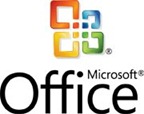New Office Documentation Now Publicly Available
By Paul Lorimer, Group Manager, Microsoft Office Interoperability
[UPDATE: 05/24/2010, Two open source projects to facilitate interoperability with Outlook .pst data files ]
 Customers of Microsoft Office often work in heterogeneous IT environments, so their need for interoperability among disparate business systems is critical. They expect their trusted vendors to work together to make it happen, and Microsoft has demonstrated a strong commitment to the pursuit of interoperability through collaboration with industry players, open access and transparency when it comes to our intellectual property in this area, participating in the creation and maintenance of industry standards, and building our products in a way that makes interoperating with them easier by design.
Customers of Microsoft Office often work in heterogeneous IT environments, so their need for interoperability among disparate business systems is critical. They expect their trusted vendors to work together to make it happen, and Microsoft has demonstrated a strong commitment to the pursuit of interoperability through collaboration with industry players, open access and transparency when it comes to our intellectual property in this area, participating in the creation and maintenance of industry standards, and building our products in a way that makes interoperating with them easier by design.
Ever since we released Microsoft Office 2007 SP2, we have been releasing tools and publishing tens of thousands of pages of documentation to help developers (including competitors) interoperate with the various products in the Office suite. Today we took another big step in our commitment to open access and transparency, delivering some highly anticipated documentation we’ve promised over the past year or so:
- More documentation for Microsoft Office 2010. In July 2009, when Office 2010 was still in technical preview, we published thousands of pages of detailed technical documentation for the protocols used by our products to communicate with Office 2010. This enabled third parties to develop software that interoperates with Office 2010, informed by how other Microsoft products do so, while Office 2010 was still several months away from broad release. Today, as promised, we added thousands more pages to the canon. The addition of this new documentation will help other vendors bring interoperable products to market faster, increasing customer choice and satisfaction and driving better business results.
- Brand new documentation for Microsoft Outlook files. Data portability is increasingly important for our customers and partners as more information is stored and shared in digital formats. One particular request we’ve heard is for improved access to email, calendar, contacts, and other data generated by Microsoft Outlook. On desktops, this data is stored in Outlook Personal Folders, in a format called a .pst file. Last fall we promised to release documentation that would make it easier for developers to read, create, and interoperate with the data in .pst files across a variety of platforms, using the programming language of their choice. After seeking input on the documentation from the community, today we delivered on that promise (here's the link to the documentation on MSDN: http://msdn.microsoft.com/en-us/library/ff385210.aspx).
This kind of transparency provides exciting possibilities for our customers and partners. We’re proud of the work we’ve done in this area, and you can count on Microsoft to continue its vigorous pursuit of interoperability through a comprehensive approach, of which transparency is one of the keystones.
Paul Lorimer, Group Manager, Microsoft Office Interoperability
Related items:
- Microsoft Publishes Implementation Notes for File Formats in Office 2007 – Dec. 16, 2008
- Update: Microsoft Releases OpenXML Implementation Notes – Jan. 19, 2009
- Roadmap for Outlook Personal Folders (.pst) Documentation – Oct. 26, 2009
- External Resources: Document Interoperability Initiative (DII) Web site - http://documentinteropinitiative.org/